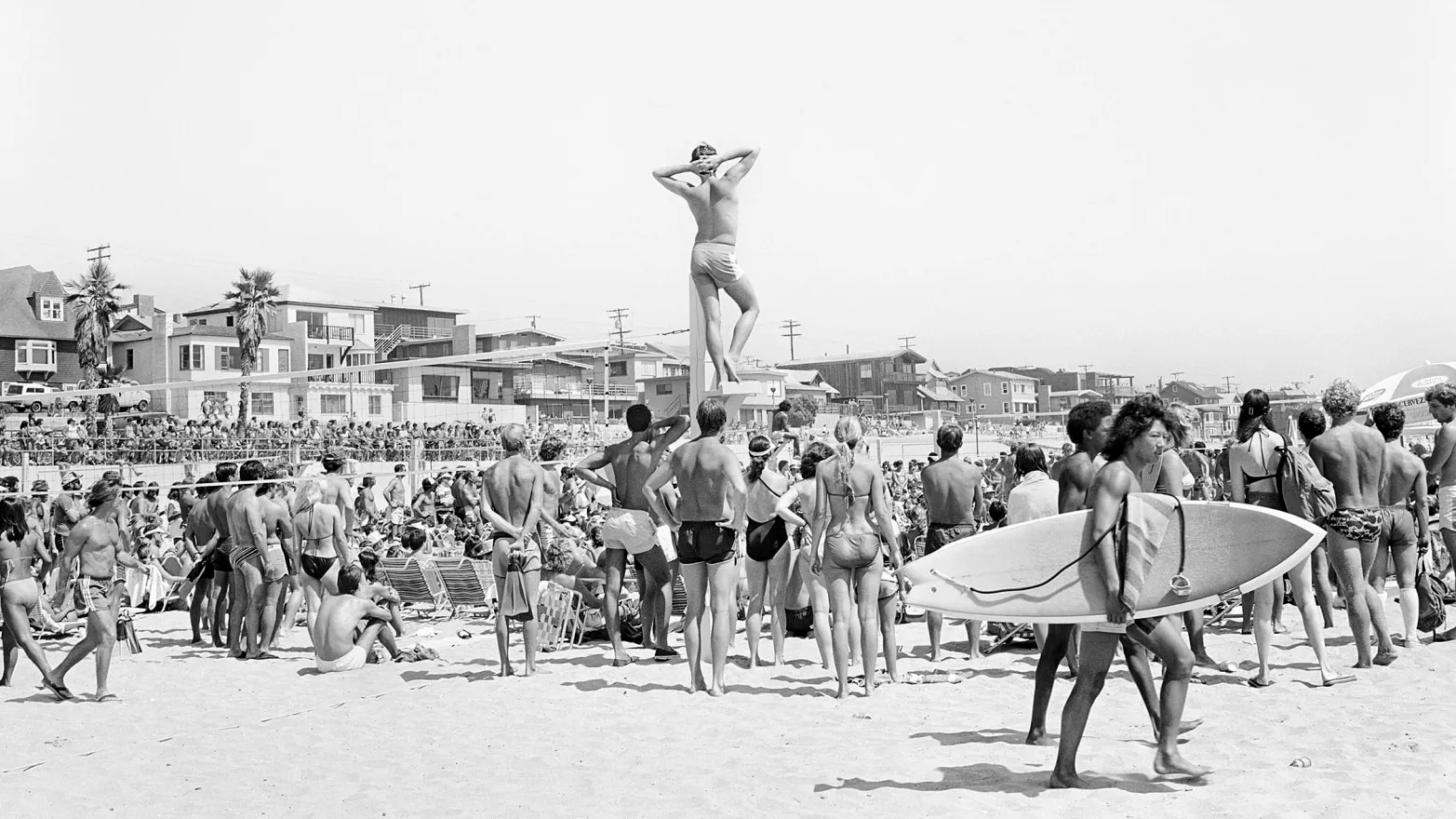By Emma Allen
Amazingly, few of Papageorge’s subjects stare directly at the guy lugging a 6×9-cm.-format camera around the beach, although, as he said, “even on the nude beaches, I was out there in my street clothes, looking like an idiot.” He noted that this was the same kind of format camera that Brassaï used to photograph in Paris night clubs, in the thirties and forties; Papageorge would also use it to photograph inside Studio 54—a series in which the revellers seem as oblivious to his presence as the sunbathers had been (could there be a correlation between the effects of club drugs and heatstroke?).
“In both cases, I just would stand still and pretend I didn’t exist, and eventually people seemed to accept the fact that I didn’t exist, that I’d somehow spontaneously combusted,” Papageorge recalled (this was even true of Wilt Chamberlain, whom he once stumbled upon in L.A.). “I would wait and wait until what I felt was a singular moment, only one moment, just one chance to lift the camera in a single gesture and make a single exposure.”
Papageorge, who is now eighty-four, grew up in the coastal town of Portsmouth, New Hampshire. In the summers, he worked in his father’s restaurant—“I’m Greek-American, so that’s a necessary condition,” he said. “Hot and sweaty after a day at work, I’d drive to the beach and swim.” But when it came to the West Coast, he added, “I’d never seen an Annette Funicello film, nor was I particularly interested in the Beach Boys.”
He was surprised by what he found in California: “I guess in your imagination you see four or five people wandering around, where in reality it’s piles, crowds of people moving around, so it’s much more enticing, engaging, exciting, because it is so complex.” Papageorge is drawn to formally challenging scrums, which his photos transform into theatrical vignettes or semi-abstractions: in addition to Studio 54, he has photographed in sports arenas, Central Park, and the Acropolis.
The photographer Lisa Kereszi, who organized the new show, is the assistant director in photography at the Yale School of Art, where Papageorge served as director of graduate studies in photography from 1979 to 2013. According to MOCA CT, a staggering forty-one of Papageorge’s M.F.A. students went on to receive Guggenheim Fellowships, and prints of some of their grad-school work, as well as a looping slideshow of photos by almost three hundred of Papageorge’s other students, will be featured in a concurrent show at MOCA CT titled “In the Pool.” The name refers to a renovated former swimming pool at Yale, in which classes and photo critiques are held. Also, Kereszi likes to compare being an art student to “doing laps, over and over—you have crits, over and over, and you get better and better. You know, sink or swim.”
“He was never Doctor Feelgood,” the late photographer and Yale professor Richard Benson once wrote of Papageorge’s pedagogical style. Still, Benson and Papageorge’s good-cop, bad-cop routine (Papageorge’s description) clearly produced results. One infamous Papageorge zinger, “Your work looks like you’ve never read a book” was all the more stinging because Papageorge, who was an English major, has long insisted on “the absolutely direct relationship between photographs and poems.”
Papageorge has said that he also views his beach photographs as musical. In college, he played timpani in the orchestra and drums in a jazz group. When asked whether pounding a drum—bang, bang, boom!—was the opposite of lurking on a beach, hoping to become invisible, he countered, “When you lift the camera to make the picture, that’s something of a ‘bang, bang, boom!’—at least for the photographer.”
